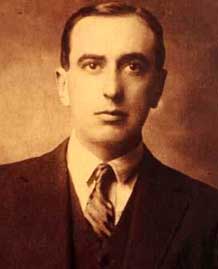The “literacy text” is not completed until the reader turns it in a meaningful object, which will be necessary plural. Roland Barthes
domingo, 12 de octubre de 2014
viernes, 10 de octubre de 2014
The Trojan War Story told in the Iliad
The Iliad (meaning a song about Ilium) and the Odyssey are Greek epic poems, conventionally attributed to a singularly talented poet named Homer, who lived in the east Greek region of Ionia in the 8th century B.C.E. Most scholars today, however, question the idea that one singer-poet composed either or both poems, at least not as we would imagine a poet composing today. Further, a growing number of scholars contest the 8th century date of composition. There were multiple Trojan War story traditions developing at that time; homeric epic is not the earliest nor did it emerge as especially influential or important until the 6th century B.C.E. That much said, in classical antiquity the songs that became our Iliad and Odyssey did eventually achieve a unique and honorific status, which lived on in western European culture and literature.
People today know the Iliad as a book, usually printed as lines of poetry and translated from the ancient Greek into English or another modern language. They experience it in the silence and solitude of reading. The first lines plunge most contemporary readers into the middle of an unfamiliar story populated by dozens of equally unfamiliar characters. The modern-day encounter with the Iliad however, is unlike that of most Greeks in the ancient world, especially before the time of Alexander the Great at the end of the 4th century B.C.E. Outside of a lettered elite in the historical period, most ancient Greeks would have read Homer rarely if at all. Instead, from childhood, they would have heard Trojan War poetry, including precursors to our Iliad, sung by poet-singers in feasting halls and during regional athletic festivals or musical competitions. The basic plot and the cast of characters were not only common knowledge, they were woven into the fabric of Greek social and cultural life.
miércoles, 8 de octubre de 2014
lunes, 6 de octubre de 2014
Vicente Huidobro
Vicente
Huidobro (1893
– 1948) was a Chilean poet. He was an exponent of the artistic
movement called Creationism, which held that a poet should bring life
to the things he or she writes about, rather than just describe them. In
1914, he gave a lecture,Non serviam, which reflected his
aesthetic creed. He studied literature at the University of
chile and published Ecos del alma (Soul's Echoes)
in 1911, a work with modernist tendencies. The following year he married, and
started to edit the journal Musa Joven (Young Muse),
where part of his later book,Canciones en la noche (Songs in the
Night) appeared, as well as his first calligram, "Triángulo
armónico" ("Harmonic Triangle").
Night
You hear the night glide across the snowThe song fell down from the trees
And through the fog sounded voices
I lit my cigar at a glance
Every time I open my lips
I flood the void with clouds
In the harbor
The masts are full of nests.
And the wind
groans in the birds' wings
THE WAVES ROCK THE DEAD SHIP
Whistling on the shore I
Look at the star that glows between my fingers
(Noche)
domingo, 5 de octubre de 2014
Suscribirse a:
Comentarios (Atom)
